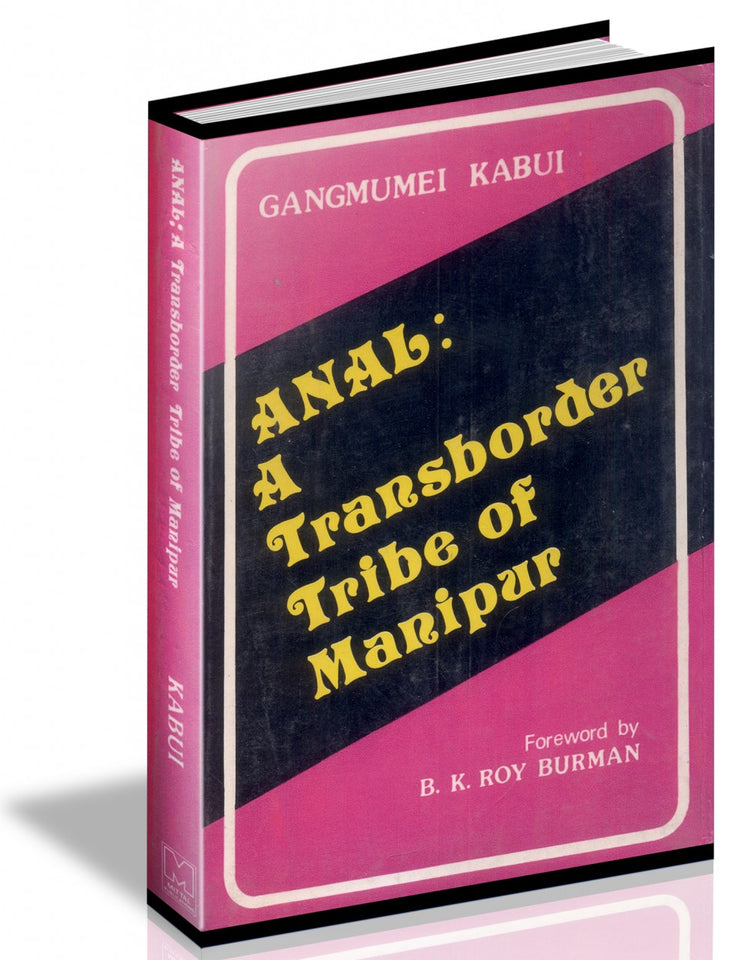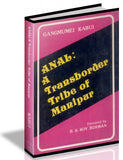Anal: A Trans-Border Tribe Of Manipur
Regular price
Rs. 70.00
The Anal Tribe Is Found Both In India And Upper Burma. Their Ethnic Frontier Crosses The Political Boundaries Of The Two Countries. Originally, This Small Group Of The Tibeto-Burmans, Speaking Kuki-Chin Dialect Migrated From The Rugged Mountains And Wide River Valleys Of Upper Burma To The South Western Hills Of Manipur Across The Chin Hills. They Established Cultural And Political Relations With The Meiteis Of Manipur Valley. Now They Occupy The Chakpi River Basin As Their Homeland. Ethnically And Linguistically Linked With The Kuki-Chin Section Of The Tibeto-Burmans, The Anals Had Acquired Social And Cultural Traits Which Are Nearer To Their Northern Neighbours, The Nagas. Their Geopolitical Situation Has Made The Anals A Classic Case Of The Bridge-Buffer Community Between The Nagas And Kukis. This Had Led To The Problem Of Identity Of Anal Community Itself. Socially Divided Into Two Moieties-Masum And Mulcham, The Anals Live In A Well-Knit Social Organisation, The Customary Laws And Traditions Are As Well Adhered To By The People Themselves Despite Modernization Specially The Coming Of The Christianity Since The Colonial Times. But Their Cultural Life Which Was Once Enlivened By The Performance Of Magnificient Ceremonies, Rituals And Festivals Which Were Always Accompanied By Beautiful Dance And Songs, Is Facing The Challenge Of Modernity. The Anals Are Politically Organised At The Village Level, Chiefs And Their Councillors Administer The Village Land, Maintain Law And Order And Justice. The Coming Of Democratic Norms With India?s Independence Has Affected The Anal Political System. The Greatest Change Is In The Realm Of Economic Development. The Traditional Jhum Cultivators Are Resorting To Wet And Terrace Cultivation; Educational Changes Have Come. The Study Of Two Villages, ? Anal Khullen An Saluk-Brings Out The Phenomena Of Continuityas Well As Change In Anal Society.
Prof. Gangmumei Kabui (born 1941) was educated at Imphal and Gauhati University where he got M.A. (History) for which he was awarded University Gold Medal and S.K. Bhuyan Prize (1961). He started his teaching career as lecturer at Imphal College (1962-64), where he later became Head of History Department, Post-Graduate Section, D.M. College, Imphal (1964-72). Later he joined as Associate Professor and Head of Division of History in Jawaharlal Nehru University, Centre of Post-Graduate Studies at Imphal in 1972. There-after he became a Fellow. After joining Manipur University in 1981 he became a Senior Fellow in History (1984) and Dean of Student’ Welfare. He is associated with a large number of academic and social organisations. He was Organising President and, later on, General Secretary for several terms of Manipur Cultural Integration Conference (since 1967). In this capacity he was deeply involved with the movement for the establishment of University, Medical College, Agricultural College and State Kala Akademi in Manipur. Among other positions held by him are: (i) General Secretary, Manipur Historical Society (1978), Treasurer and later on Vice-President, Manipur Council for Social Welfare. (ii) Founder Secretary, Institute of People’s Action at Awangkhul (1977). (iii) Member, Advisory Committee in Customary laws codification of Tengnoupal Autonomous District (1976). Vice President, North East-India History Association (1983). (iv) Chairman, Committee on Writing Regional Composite History of Manipur, sponsored by the Government of Manipur. (v) Member, ICSSB Advisory Group on Social Science Research in North East India, National Executive Members, Himalaya Seva Sangha, Honorary Wild Life Warden, of Manipur and Syndicate of Manipur University.
Guaranteed Safe Checkout





